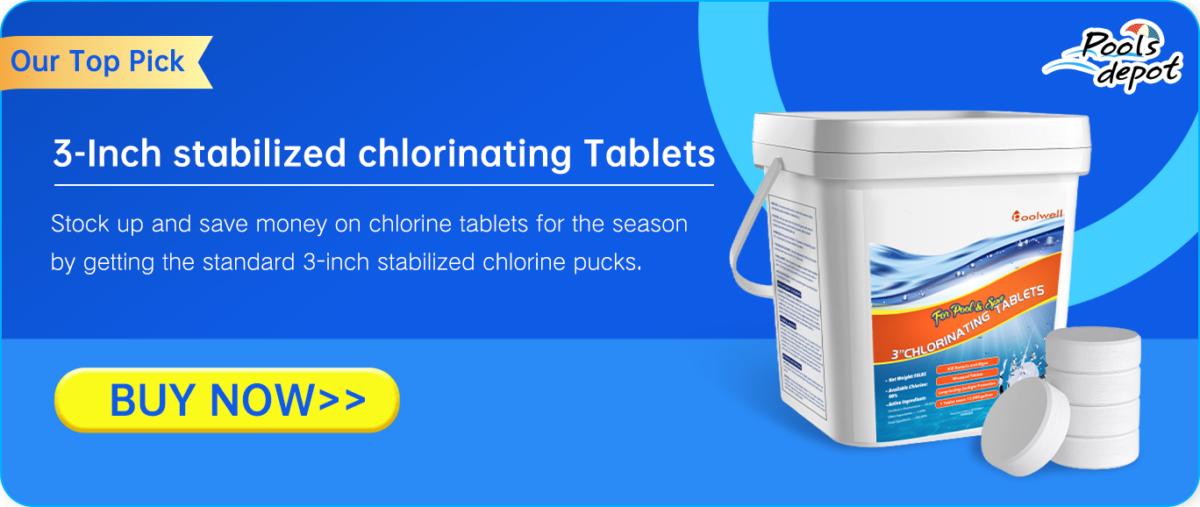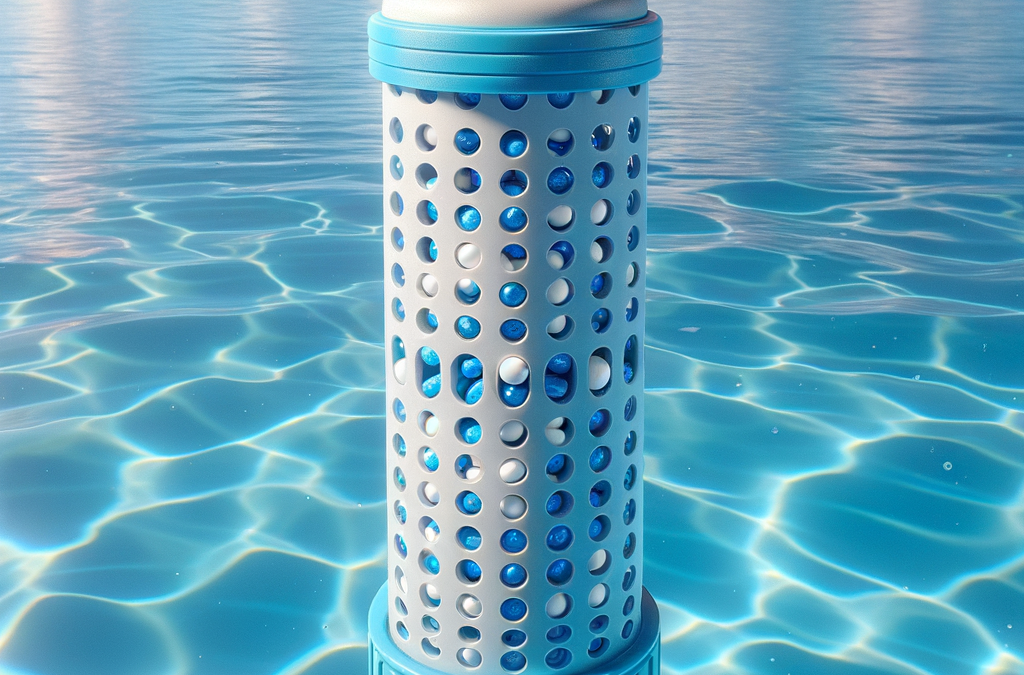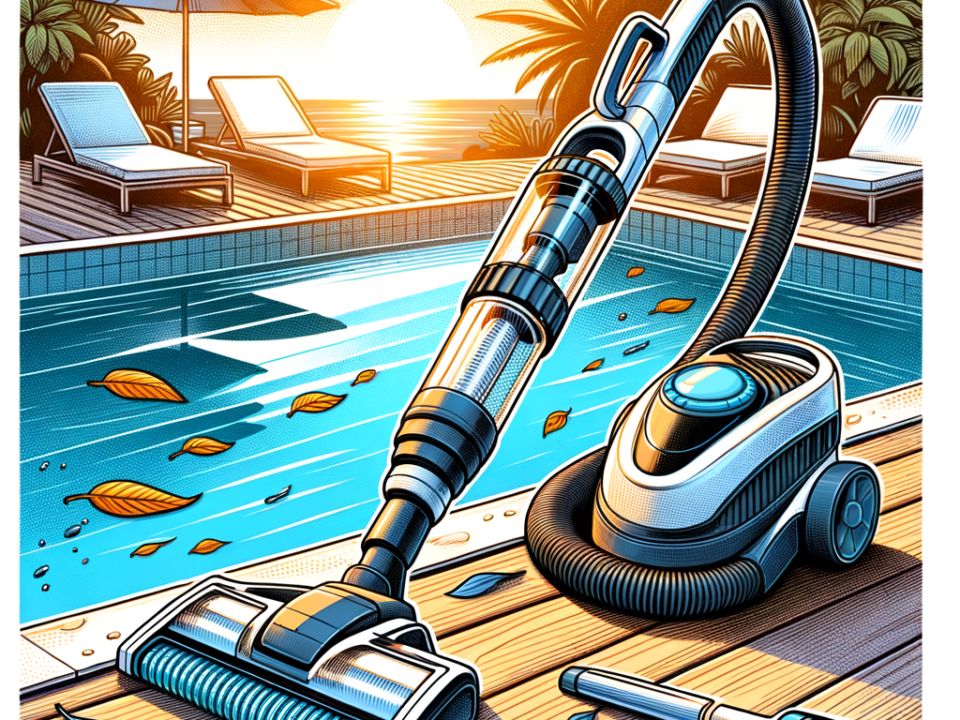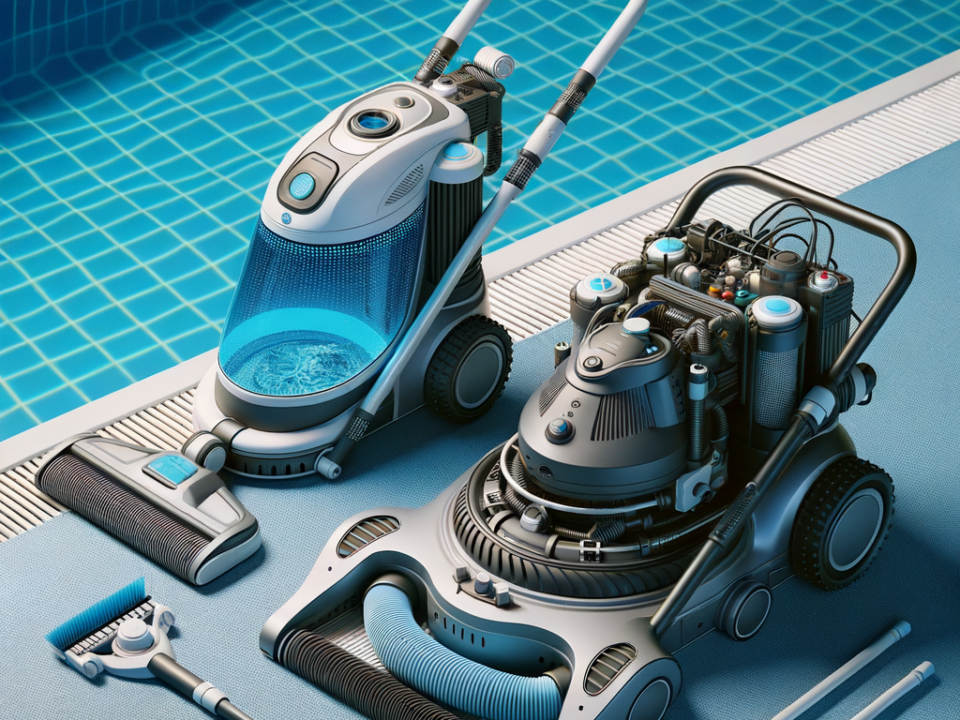
Transform Your Pool with the Ultimate Pool Cleaning Net: A Must-Have Tool
May 17, 2024
Unforgettable Pool Fun: Dive into Summer’s Ultimate Joy and Excitement
May 20, 2024“Effortless Clarity: Dive into Crystal Clear Waters with Our pool chlorine dispenser!”
Table of Contents
Introduction
A pool chlorine dispenser is a device designed to simplify the process of maintaining proper chlorine levels in swimming pools. It ensures consistent and even distribution of chlorine, which is essential for keeping pool water clean, clear, and safe for swimmers. These dispensers come in various forms, including floating models and in-line systems, and are typically adjustable to control the rate at which chlorine is released. By automating the chlorination process, pool chlorine dispensers help prevent the growth of algae and bacteria, reduce the need for manual chemical adjustments, and contribute to the overall health and enjoyment of the pool.
Comparing Different Types Of Pool Chlorine Dispensers

When it comes to maintaining a clean and safe swimming environment, the role of a pool chlorine dispenser cannot be overstated. These devices are essential for ensuring that the chlorine levels in the pool remain consistent, thereby preventing the growth of harmful bacteria and algae. However, with various types of pool chlorine dispensers available on the market, it can be challenging to determine which one best suits your needs. This article aims to compare different types of pool chlorine dispensers, highlighting their features, advantages, and potential drawbacks.
One of the most common types of pool chlorine dispensers is the floating dispenser. Floating dispensers are typically made of durable plastic and are designed to float on the surface of the pool. They have adjustable vents that allow users to control the rate at which chlorine tablets dissolve into the water. The primary advantage of floating dispensers is their simplicity and ease of use. They are relatively inexpensive and require minimal maintenance. However, they may not provide the most consistent chlorine distribution, especially in larger pools, as they tend to drift to one side or get caught in corners.
In contrast, in-line chlorine dispensers are integrated directly into the pool’s plumbing system. These dispensers are installed in the return line of the pool’s filtration system, allowing chlorine to be evenly distributed as water circulates through the pool. In-line dispensers offer the benefit of consistent chlorine levels and are ideal for larger pools. They also reduce the need for manual intervention, as they can be set to release chlorine at a predetermined rate. On the downside, in-line dispensers are more complex to install and may require professional assistance. Additionally, they tend to be more expensive than floating dispensers.
Another option to consider is the automatic chlorine feeder. These devices are similar to in-line dispensers but come with advanced features such as digital controls and sensors. Automatic chlorine feeders can monitor the chlorine levels in the pool and adjust the dispensing rate accordingly. This ensures optimal chlorine levels at all times, providing a hassle-free experience for pool owners. The main advantage of automatic feeders is their precision and convenience. However, they are the most expensive option and may require regular maintenance to ensure proper functioning.
Saltwater chlorine generators represent a different approach to pool chlorination. Instead of using traditional chlorine tablets, these systems convert salt into chlorine through a process called electrolysis. Saltwater generators offer several benefits, including softer water and reduced chemical usage. They also provide a more consistent chlorine level, as the generator continuously produces chlorine as long as the pool pump is running. However, the initial cost of a saltwater chlorine generator can be high, and the system requires regular monitoring and maintenance to ensure optimal performance.
In summary, the choice of pool chlorine dispenser depends on various factors, including the size of the pool, budget, and personal preferences. Floating dispensers are cost-effective and easy to use but may not provide consistent chlorine distribution. In-line dispensers offer even distribution and are suitable for larger pools but come with higher installation costs. Automatic chlorine feeders provide precision and convenience but are the most expensive option. Saltwater chlorine generators offer a unique approach with several benefits but require a significant initial investment and ongoing maintenance. By carefully considering these factors, pool owners can select the most appropriate chlorine dispenser to maintain a clean and safe swimming environment.
Maintenance Tips For Your Pool Chlorine Dispenser
Maintaining a pool chlorine dispenser is essential for ensuring the longevity of your pool’s cleanliness and the health of its users. A well-maintained chlorine dispenser not only helps in keeping the water clear and free from harmful bacteria but also optimizes the efficiency of chlorine usage, thereby saving costs in the long run. To achieve this, it is crucial to follow a series of maintenance tips that will keep your pool chlorine dispenser in optimal condition.
First and foremost, regular inspection of the chlorine dispenser is necessary. This involves checking for any visible signs of wear and tear, such as cracks or leaks, which could compromise its functionality. If any damage is detected, it is advisable to replace the affected parts immediately to prevent further deterioration. Additionally, ensure that the dispenser is securely attached to the pool system to avoid any accidental dislodgement that could disrupt the chlorine distribution.
Another important aspect of maintenance is cleaning the chlorine dispenser. Over time, calcium and other mineral deposits can accumulate inside the dispenser, obstructing the flow of chlorine. To clean it, remove the dispenser from the pool and soak it in a solution of water and vinegar or a specialized pool cleaner. This will help dissolve any build-up and restore the dispenser’s efficiency. After soaking, use a soft brush to scrub away any remaining residue, then rinse thoroughly with clean water before reattaching it to the pool system.
In addition to cleaning, it is essential to monitor the chlorine levels in your pool regularly. This can be done using a pool test kit, which will provide accurate readings of the chlorine concentration. If the levels are consistently low, it may indicate that the dispenser is not functioning correctly or that it needs to be refilled with chlorine tablets. Conversely, if the levels are too high, it could suggest that the dispenser is releasing too much chlorine, which can be harmful to swimmers and may require adjustment.
Furthermore, it is important to use the correct type of chlorine tablets for your dispenser. Not all chlorine tablets are created equal, and using the wrong type can lead to inefficiencies or even damage the dispenser. Always refer to the manufacturer’s guidelines to ensure compatibility and optimal performance. Additionally, store chlorine tablets in a cool, dry place to prevent them from degrading and losing their effectiveness.
Seasonal maintenance is also a key consideration. At the beginning and end of the swimming season, take the time to perform a thorough inspection and cleaning of the chlorine dispenser. This will help identify any potential issues before they become major problems and ensure that the dispenser is ready for use when the swimming season resumes. During the off-season, it is advisable to store the dispenser in a dry, sheltered location to protect it from the elements and prolong its lifespan.
Lastly, consider investing in a high-quality chlorine dispenser. While it may be tempting to opt for a cheaper model, a well-constructed dispenser made from durable materials will provide better performance and require less frequent maintenance. In the long run, this can save you time and money, as well as provide peace of mind knowing that your pool is being properly sanitized.
In conclusion, maintaining your pool chlorine dispenser involves regular inspection, cleaning, monitoring chlorine levels, using the correct tablets, performing seasonal maintenance, and investing in a quality product. By following these tips, you can ensure that your pool remains a safe and enjoyable environment for all swimmers.

How To Choose The Right Pool Chlorine Dispenser
Choosing the right pool chlorine dispenser is a crucial decision for maintaining the cleanliness and safety of your swimming pool. With a variety of options available on the market, it is essential to understand the different types of dispensers and their respective advantages and disadvantages. This knowledge will enable you to make an informed decision that best suits your pool’s needs.
To begin with, it is important to recognize the primary function of a pool chlorine dispenser. These devices are designed to release chlorine into the pool water at a controlled rate, ensuring that the water remains free from harmful bacteria and algae. Chlorine is a powerful disinfectant, and maintaining the correct chlorine levels is vital for the health and safety of swimmers. Therefore, selecting an appropriate dispenser is a key aspect of effective pool maintenance.
One of the most common types of pool chlorine dispensers is the floating dispenser. This type of dispenser is simple to use and relatively inexpensive. It floats on the surface of the pool and gradually releases chlorine tablets into the water. The main advantage of a floating dispenser is its ease of use; however, it may not provide the most consistent chlorine distribution, especially in larger pools. Additionally, floating dispensers can be affected by wind and water currents, which may cause them to congregate in one area of the pool, leading to uneven chlorine levels.
In contrast, in-line chlorine dispensers are installed directly into the pool’s plumbing system. These dispensers offer a more consistent and controlled release of chlorine, as the water flows through the dispenser and dissolves the chlorine tablets before returning to the pool. In-line dispensers are particularly suitable for larger pools or those with more complex filtration systems. While they tend to be more expensive and require professional installation, their ability to maintain stable chlorine levels makes them a popular choice among pool owners seeking a more reliable solution.
Another option to consider is the automatic chlorine feeder. This type of dispenser is also integrated into the pool’s plumbing system but offers the added benefit of automation. Automatic feeders can be programmed to release chlorine at specific intervals, ensuring that the pool maintains optimal chlorine levels without the need for constant monitoring. This feature is particularly advantageous for busy pool owners who may not have the time to manually adjust chlorine levels. However, the initial cost and installation of an automatic feeder can be higher compared to other types of dispensers.
When choosing a pool chlorine dispenser, it is also important to consider the size and type of your pool. For instance, above-ground pools may benefit more from floating dispensers due to their simplicity and ease of use, while in-ground pools with more complex filtration systems may require the precision and consistency offered by in-line or automatic feeders. Additionally, the frequency of pool use and the number of swimmers can impact the amount of chlorine needed, influencing the choice of dispenser.
In conclusion, selecting the right pool chlorine dispenser involves evaluating various factors, including the type of dispenser, the size and type of your pool, and your maintenance preferences. By understanding the advantages and limitations of each type of dispenser, you can make an informed decision that ensures your pool remains clean, safe, and enjoyable for all swimmers.

Benefits Of Using A Pool Chlorine Dispenser
A pool chlorine dispenser is an essential tool for maintaining the cleanliness and safety of swimming pools. This device offers numerous benefits that make it a valuable addition to any pool maintenance routine. One of the primary advantages of using a pool chlorine dispenser is its ability to provide consistent and controlled release of chlorine into the water. This ensures that the chlorine levels remain stable, which is crucial for effective sanitation. By maintaining a consistent chlorine level, the dispenser helps to prevent the growth of harmful bacteria and algae, thereby ensuring that the pool water remains safe for swimmers.
Moreover, a pool chlorine dispenser simplifies the process of pool maintenance. Traditionally, pool owners had to manually add chlorine to the water, which could be time-consuming and imprecise. With a chlorine dispenser, the process becomes automated, saving time and effort. The dispenser can be adjusted to release the appropriate amount of chlorine based on the size of the pool and the specific needs of the water. This precision not only enhances the effectiveness of the sanitation process but also reduces the risk of over-chlorination, which can cause skin and eye irritation for swimmers.
In addition to improving the efficiency of pool maintenance, a chlorine dispenser also contributes to cost savings. By ensuring that the right amount of chlorine is used, the dispenser minimizes waste and reduces the frequency of chlorine purchases. This is particularly beneficial for large pools or commercial facilities where the cost of chemicals can add up quickly. Furthermore, the consistent release of chlorine helps to prolong the life of the pool’s filtration system and other equipment by preventing the buildup of contaminants that can cause damage over time.
Another significant benefit of using a pool chlorine dispenser is the enhanced safety it provides. Handling chlorine can be hazardous, as it is a strong chemical that can cause burns and respiratory issues if not managed properly. A chlorine dispenser reduces the need for direct contact with the chemical, thereby minimizing the risk of accidents and exposure. This is especially important for households with children or pets, as it adds an extra layer of protection against potential hazards.
Additionally, a pool chlorine dispenser promotes a more enjoyable swimming experience. By maintaining optimal chlorine levels, the dispenser helps to keep the water clear and free of unpleasant odors. Swimmers can enjoy a refreshing and hygienic environment without the discomfort of strong chlorine smells or the irritation caused by imbalanced chemical levels. This is particularly important for those who use the pool frequently or have sensitive skin.
Furthermore, the use of a chlorine dispenser can enhance the overall aesthetic appeal of the pool. Clear, clean water is more inviting and visually appealing, making the pool a more attractive feature of the property. This can be particularly advantageous for homeowners looking to increase the value of their property or for commercial establishments aiming to attract more guests.
In conclusion, a pool chlorine dispenser offers a multitude of benefits that make it an indispensable tool for pool maintenance. From ensuring consistent and effective sanitation to simplifying maintenance tasks, reducing costs, enhancing safety, and improving the swimming experience, the advantages of using a chlorine dispenser are clear. By investing in this device, pool owners can enjoy a cleaner, safer, and more enjoyable swimming environment with minimal effort.
Q&A
1. **What is a pool chlorine dispenser?**
A pool chlorine dispenser is a device used to release chlorine into a swimming pool at a controlled rate to maintain proper sanitation levels.
2. **How does a pool chlorine dispenser work?**
It typically holds chlorine tablets and floats on the water surface, gradually dissolving the tablets and dispersing chlorine throughout the pool.
3. **How often should you refill a pool chlorine dispenser?**
Refilling frequency depends on pool size, usage, and weather conditions, but generally, it needs refilling every 1-2 weeks.
4. **Can you use a pool chlorine dispenser in an above-ground pool?**
Yes, pool chlorine dispensers are suitable for both in-ground and above-ground pools.
Conclusion
A pool chlorine dispenser is an essential tool for maintaining clean and safe swimming pool water. It ensures a consistent and controlled release of chlorine, which helps in effectively sanitizing the pool by eliminating harmful bacteria and algae. By automating the chlorination process, it reduces the need for frequent manual intervention, making pool maintenance more convenient and efficient. Overall, a pool chlorine dispenser is a valuable investment for any pool owner seeking to maintain optimal water quality with minimal effort.





